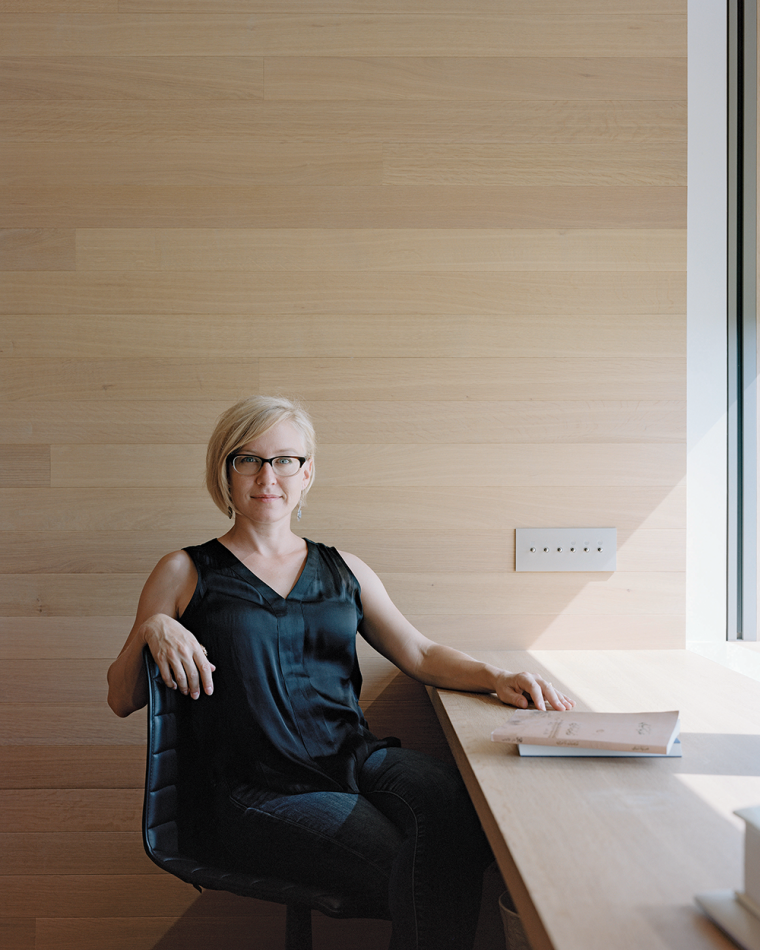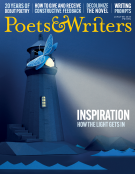For English-speaking readers and translators of international literature, Words Without Borders (WWB) is a vital resource. Through its digital literary magazine, the nonprofit is the preeminent publisher of short translations from around the world; it also publishes reviews, essays, and interviews concerned with global literature, and it advocates for international writing through education outreach and other programming. For translators, then, it’s notable that WWB’s new executive director, Elisabeth Jaquette, who was named to the role in July, is one of their own for the first time in the organization’s history. Jaquette’s six book-length translations from Arabic, which include Adania Shibli’s Minor Detail (New Directions, 2020) and Dima Wannous’s The Frightened Ones (Knopf, 2020), have been shortlisted for the National Book Award, longlisted for the International Booker Prize, and nominated for many other awards. She comes to WWB from the American Literary Translators Association, where she spent seven years as executive director. She recently spoke about translation as an art and a profession as well as her goals for her role at Words Without Borders.

Elisabeth Jaquette, the executive director of Words Without Borders. (Credit: Tonatiuh Ambrosetti)
How did you start translating?
I came to translation as an avid reader of literature in translation. I lived and studied Arabic in Cairo, and while I was there I started a book club in which we read Arabic literature—some of us in Arabic, some in English translation. We always ended up in fascinating conversations about translation, since, though I didn’t realize it at the time, people would come having read two different books. At the same time, I had just read Basma Abdel Aziz’s debut novel, The Queue, which is this great 1984-meets-Arab-Spring dystopia. I’d just lived through the revolution in Egypt, and I wanted to share the book with my friends, most of whom didn’t read literature in Arabic. I reached out to Basma, and that became my debut translation.
Has that experience influenced your broader advocacy for translation?
Absolutely. One reason I’m excited to join Words Without Borders is their broad and capacious vision of not only world literature, but also the translation community. When you create space in the field for debut or emerging translators, which WWB does, you often bring in some undiscovered writers from around the world. I think that’s why WWB is so good at acting as this premier destination for the next stars of international literature.
Before we talk more about Words Without Borders, I want to discuss your translation of Adania Shibli’s Minor Detail. It’s about Israeli brutality to Palestinian civilians, and it has attracted a big new audience—and, sadly, some censorship—since the war in Gaza began. What’s it like to have that happen to a book you translated?
I still feel incredibly honored to have translated Minor Detail. Adania Shibli is just brilliant, and I was fascinated by her attention and interest to form and the rules that she set up for herself in that novel. Unimaginably horrific circumstances have brought many people to the book, but I think that good literature is enduring. Minor Detail wasn’t written in response to our current moment, so I’m just grateful to have more readers for a truly exceptional book.
Words Without Borders is curated on such a high level that it can link authors without pretending their shared attributes—subject, identity, language—mean their work is necessarily similar. How does that editorial process work?
I have such great admiration for Susan Harris and Nina Perrotta, our editorial team. In my view, what sets WWB apart is its rich and inclusive vision for international literature, which remembers that, even if those of us in the translation field can sometimes use language or country or region as shorthand for authors or as an entry point, good literature is just good literature at the end of the day. We always want to remind readers that our understanding of a work doesn’t need to be framed by language or country.
Are there any forthcoming issues you’re especially excited about or programs you’re excited to grow?
We’ve focused on publishing more Indigenous writers in recent years, and we’re about to do a spotlight on Indigenous Amazigh literature from North Africa, which I’m very much looking forward to. We also have a really exciting issue of global writing on disability coming up, which I hope exemplifies our way of treating international writing as an access point to broader issues. I’m eager to take forward the work of our education program, which brings the work that is published in the magazine to students by training high school teachers and providing curriculum. I’m also—this is the big one for me—excited to advocate more for translators and for international writers, so we can give readers more offerings. Words Without Borders has made some great steps recently. Just in the past year we increased our contributor fees by 20 percent. I’m hoping we can move forward from there while also helping set best practices for the field. Doing so will serve translators by making it possible for more people to enter and keep working in the field and also allow us to be a resource for other publications interested in dipping their toes into international literature. It’s different, as you know, to review translations or to publish translations, and sharing best practices can only make it easier for editors at other publications who are encountering translation for the first time. Words Without Borders and other leaders in the field can help those editors avoid reinventing the wheel.
Is there any aspect of joining WWB that you’re excited about on a more personal level?
I feel very honored to join a team that published writers like Elena Ferrante, Olga Tokarczuk, and Han Kang well before they became international stars—and a team that has really shown its capacity to act as a springboard for today’s talent. I will also say that my very first paid translation was published in Words Without Borders. So for me it’s a very nice full-circle moment.
Lily Meyer is a translator, a critic, and the author of the novel Short War (Deep Vellum, 2024). Her novel The End of Romance is forthcoming from Viking.








